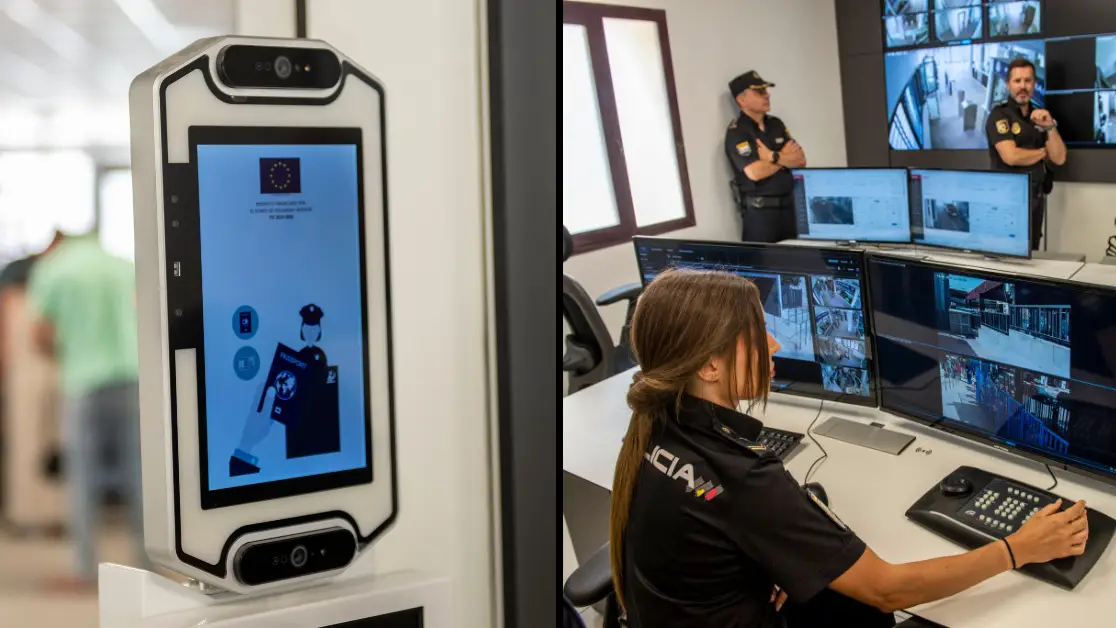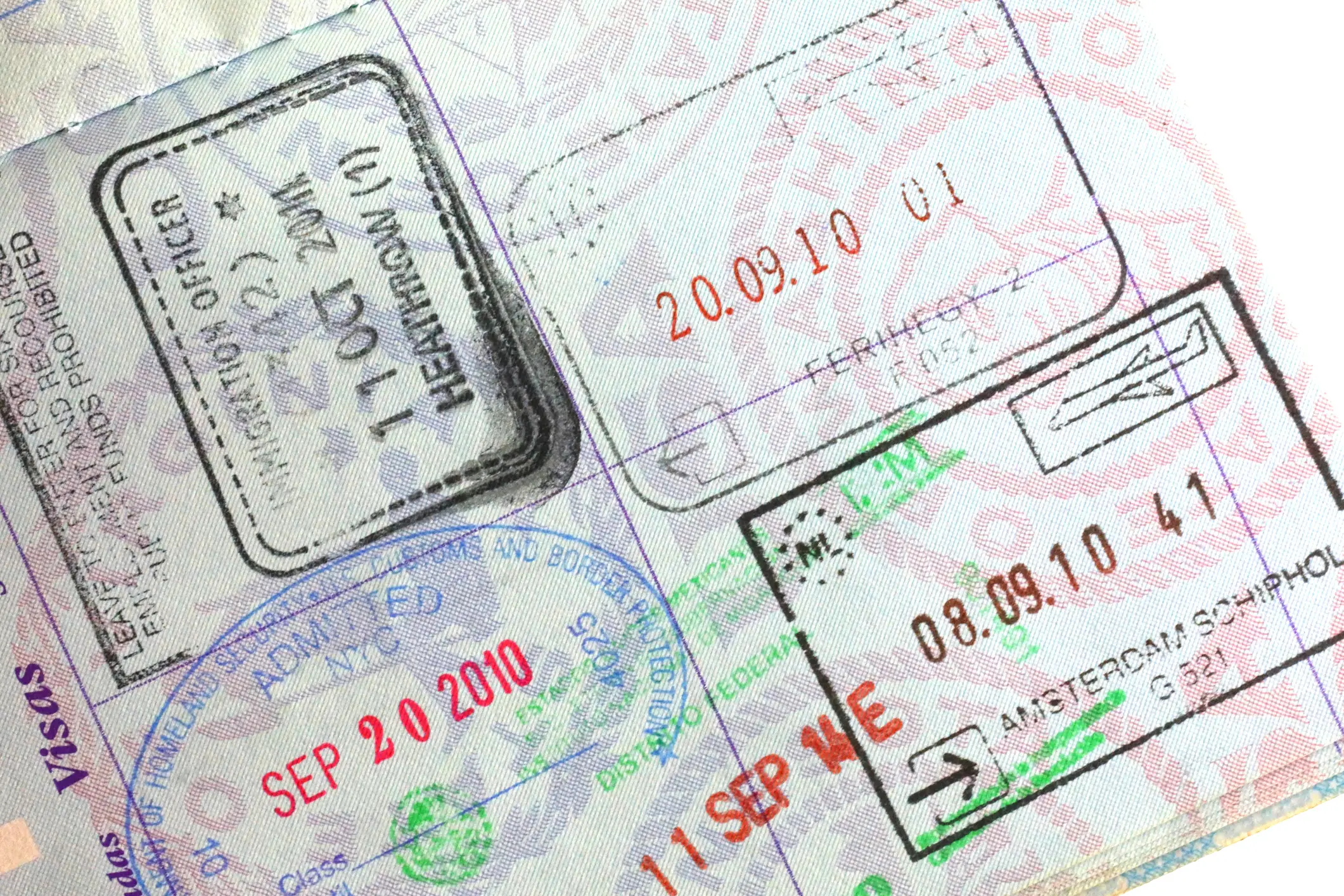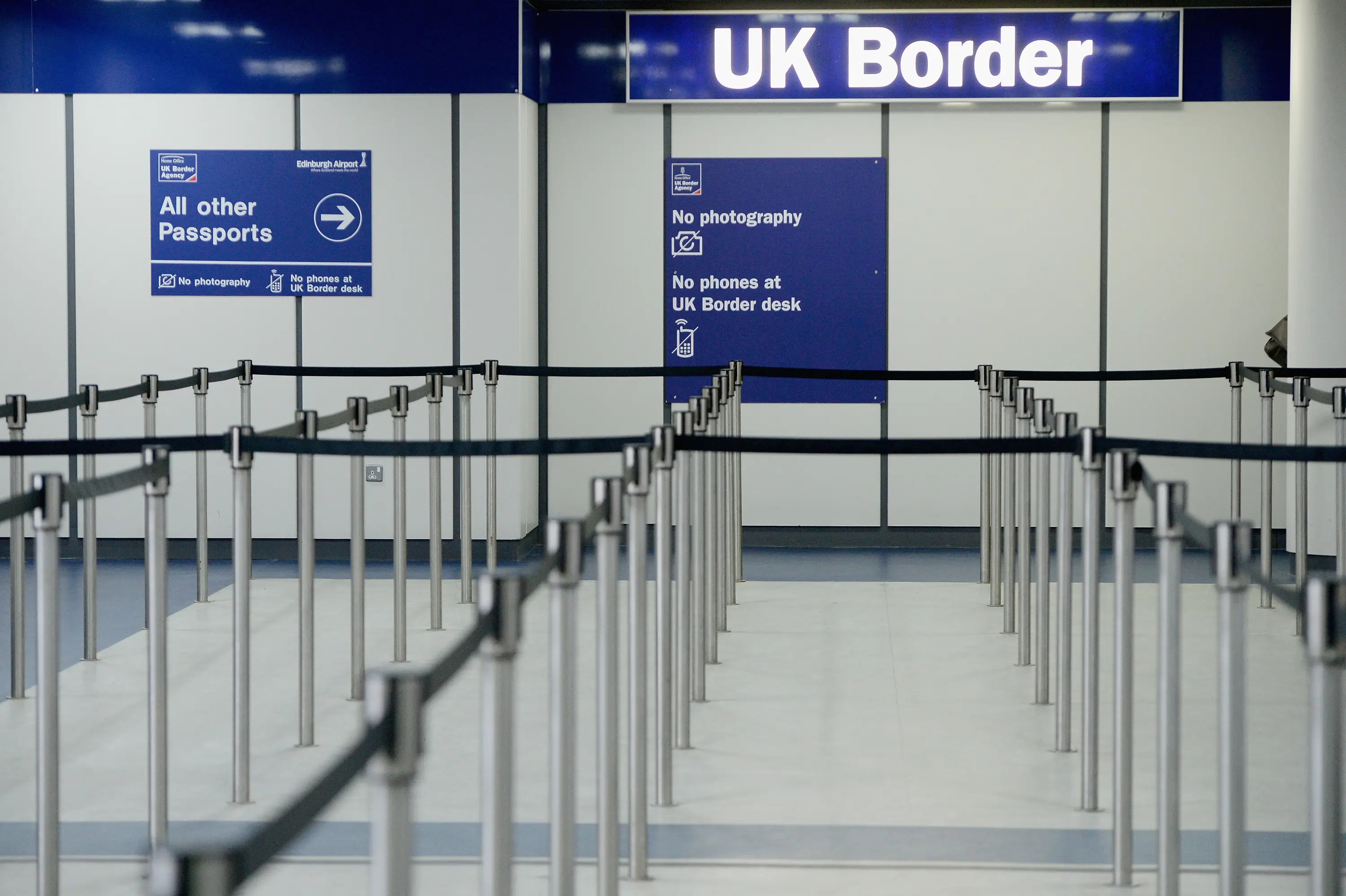
Huge passport changes are set to impact British travellers heading to dozens of countries across Europe.
It comes after the Foreign Office issued advice on the impending move to new rules, which are likely to bring longer waiting times with them.
TUI has also issued information to those flying with the airline, stating it might 'take a bit longer than usual to pass through border control'.
Advert
Both pieces of advice have been issued as a result of something called the Entry / Exit System, or EES.
The EES is a brand-new border control security system being rolled out right across the European Union.
Given that the UK chose to leave the EU eight years ago, it means the new rules will have to be followed by everyone with a British Passport, in what is likely to be the latest sore point when it comes to the reality of saying goodbye to the EU.
Once the system goes live, the EES will mean Brits no longer need to get their passport stamped when entering or exiting 29 European countries belonging to the Schengen Area. This is the combined area of the EU which shares an open border; something the UK gave up in voting for Brexit.

Since Brexit, Brits have to get their passports stamped in any of the following countries: Austria, Belgium, Bulgaria, Croatia, Czechia, Denmark, Estonia, Finland, France, Germany, Greece, Hungary, Iceland, Italy, Latvia, Liechtenstein, Lithuania, Luxembourg, Malta, Netherlands, Norway, Poland, Portugal, Romania, Slovakia, Slovenia, Spain, Sweden, and Switzerland.
The EES will remove the need for a stamp, with Brits instead having their fingerprints and retinas scanned at border control.
It's all to do with stopping people with passports from outside of the Schengen Area from overstaying their welcome; something officially known as the Schengen 90/180-Day Rule.
Under this rule, people who aren't citizens of an EU country can stay for up to 90 days within any 180 days. But you cannot stay a day longer.

Breaking this rule could see yourself banned from the entire EU for a period of up to three years.
Now, Ylva Johansson, the commissioner for home affairs at the European Commission, announced at the end of last week (10 October) that the EES has been delayed.
She told journalists that 'the 10th of November is no longer on the table', adding that Germany, France, and the Netherlands had said they were not ready to roll out the system.
"I hope we can start as soon as possible but there's no new timeline so far. This also depends on the legal assessment that we will do and we're working on it right now," Johansson added.

Luke Petherbridge, director of public affairs at ABTA, The Travel Association, said: “It is good to know the full implementation of EES is no longer expected in November, as the industry had been left in limbo waiting for news on when it will start.
“We do still need urgent confirmation and clarification on the next steps of EES; it’s difficult to talk to a customer about a new system without knowing if it will actually be in place for their trip. It is also really important the rollout, in whatever form it takes, avoids peak travel periods."
Topics: UK News, Europe, Brexit, Technology, Travel